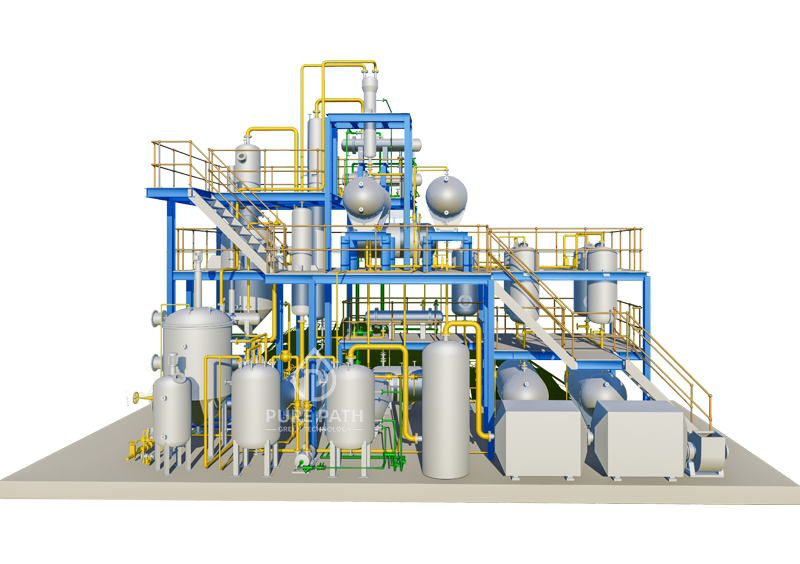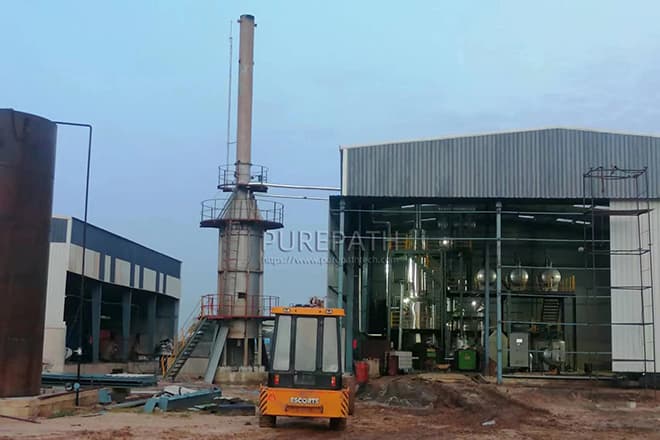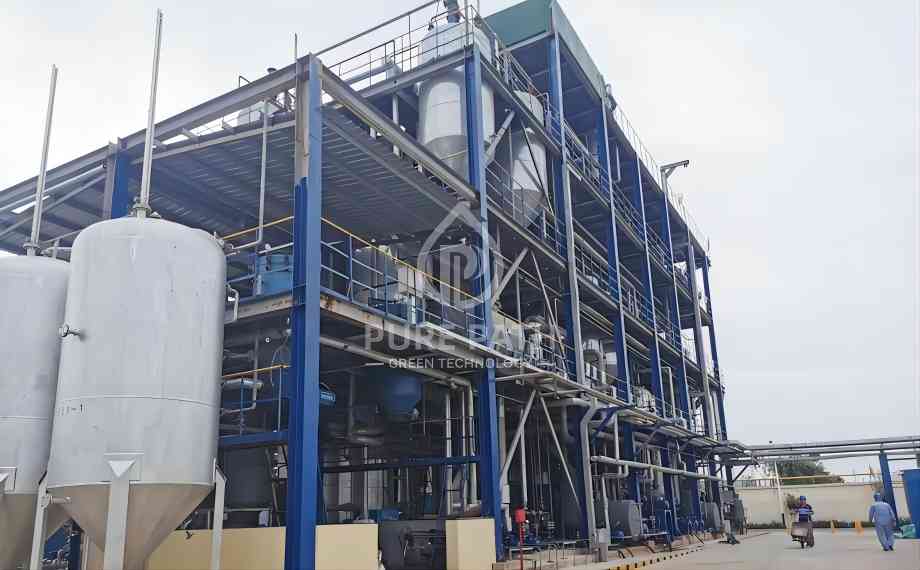How to Make Diesel Fuel from Used Engine Oil?
Used engine oil poses significant environmental challenges, with improper disposal contributing to pollution and resource depletion. However, emerging technologies offer a promising solution — converting used engine oil into diesel fuel. This article explores the potential of transforming waste into a valuable energy source while highlighting the importance of sustainable fuel alternatives.
What is Used Engine Oil?
Used engine oil, often deemed an environmental hazard, possesses the potential for a transformative journey from pollutant to valuable resource. Unlocking this potential requires a comprehensive understanding of its chemical composition. Once used engine oil fulfills its primary purpose of lubricating and safeguarding engines, it becomes laden with impurities and contaminants, necessitating proper disposal methods.

In response to environmental concerns and the need for responsible waste management, there has been a notable shift in focus towards repurposing used engine oil into a valuable energy source – specifically, diesel fuel. This approach aligns with the principles of the circular economy, aiming to reduce environmental impact and promote resource efficiency.
The conversion process involves sophisticated technologies such as re-refining or distillation, altering the chemical structure of used engine oil to yield a high-quality diesel fuel. By embracing this sustainable solution, we not only address the challenge of waste management but also contribute to the reduction of reliance on conventional fossil fuels.
What’s the Process of Used Engine Oil to Diesel?
1. Collection and Pre-treatment:
The initial phase of transforming used engine oil into diesel involves meticulous collection and pre-treatment processes. The journey begins with the careful collection of used engine oil, after which it undergoes essential pre-treatment steps. Filtration techniques are employed to remove impurities, ensuring a cleaner starting point for the conversion process. Additionally, settling processes are applied to effectively separate water and solids from the oil, thereby preparing it comprehensively for subsequent transformation stages.
2. Distillation: Breaking Down Components:
The heart of the conversion process lies in the distillation phase. Used engine oil undergoes heating and vaporization, exploiting the distinct boiling points of its various components. The introduction of fractional distillation is crucial at this stage, allowing for the precise separation of diverse hydrocarbons and impurities. This meticulous process is pivotal in obtaining diesel-like fractions from the used oil, marking a significant advancement in the conversion journey.

3. Desulfurization: Enhancing Environmental Compatibility:
As a critical step to meet stringent fuel quality standards and enhance environmental compatibility, desulfurization becomes imperative in the conversion process. Hydrogenation reactors, coupled with catalysts, play a key role in facilitating the removal of sulfur from the oil. This step not only elevates the quality of the resulting diesel fuel but also aligns with environmental regulations by significantly reducing sulfur emissions upon combustion.
4. Filtration and Final Refinement:
The concluding stages of the conversion process involve meticulous filtration to eliminate any remaining impurities. This comprehensive refinement ensures that the end product aligns with strict fuel quality standards. The culmination of these steps results in a diesel-like fuel derived from what was once considered waste, highlighting the transformative potential of repurposing used engine oil into a valuable and environmentally friendly resource.
What Equipment and Apparatus Are Needed?
The conversion of used engine oil into diesel fuel involves a sophisticated interplay of equipment and apparatus, each playing a pivotal role in the transformation process.
1. Filtration Units:
Filtration is a crucial early step in the process, aimed at removing solid impurities and contaminants from the collected used engine oil.
High-efficiency filtration units equipped with specialized filters capable of effectively separating impurities, ensuring a cleaner base for subsequent processes.
2. Distillation Equipment:
Distillation is the heart of the conversion process, utilizing varying boiling points of components in used engine oil to separate them effectively. Advanced distillation units, including heating apparatus and vaporization chambers, are employed to create the necessary conditions for the fractional distillation of hydrocarbons from the oil.
3. Hydrogenation Reactors with Catalysts:
Desulfurization, a critical step in enhancing diesel fuel quality, requires hydrogenation reactors with catalysts to facilitate the removal of sulfur from the oil. Specialized reactors designed to react with sulfur compounds, along with catalysts such as nickel or cobalt, enable the conversion of sulfur compounds into hydrogen sulfide.
4. Filtration Systems for Final Refinement:
The final stages involve meticulous filtration to eliminate any remaining impurities from the processed oil, ensuring the resulting diesel fuel adheres to stringent quality standards. Precision filtration systems equipped with fine filters ensure the removal of microscopic impurities, contributing to a high-quality end product.

5. Heating and Vaporization Machinery:
Essential for the distillation process, efficient heating and vaporization machinery create the conditions necessary to separate components with distinct boiling points. Specialized heaters and vaporization chambers equipped with temperature control mechanisms ensure the precise and controlled vaporization of components during distillation.
The synergy of these components ensures not only the efficiency of the process but also the production of a high-quality, environmentally-friendly diesel fuel product that holds significant promise for sustainable energy solutions.
Conclusion
The transformation of used engine oil into diesel fuel represents a sustainable solution to environmental challenges associated with oil disposal. By understanding the chemical composition of used engine oil and employing a systematic process involving distillation, desulfurization, and filtration, individuals and industries can contribute to a cleaner and more sustainable energy future. With the right equipment and apparatus, the conversion of waste into a valuable resource becomes not just a possibility but a practical step towards reducing environmental impact and promoting a circular economy.
Purepath is a professional manufacturer of used oil recycling equipment in China. If you are curious about more process details of making used engine oil to diesel, we can provide you with suggestions professionally.







